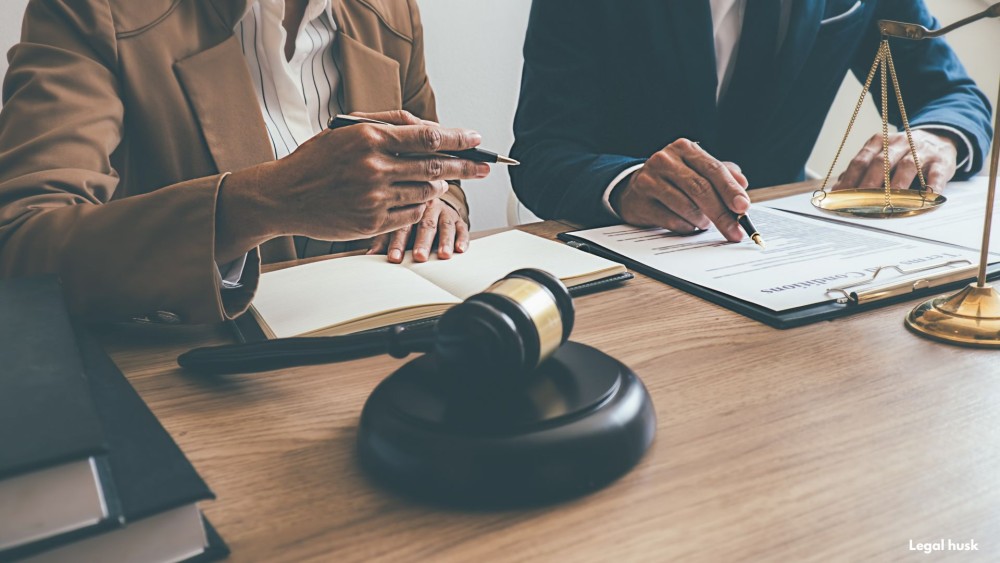
A strong complaint gets your case in the door—but discovery decides what walks out. Learn how post-complaint discovery shapes civil litigation strategy.
Filing a civil complaint sets the legal process in motion, but the real battle begins during discovery. Discovery is where claims are tested, defenses are built, and the truth—whatever it may be—starts to surface.
This article from Legal Husk breaks down the crucial role of discovery after a complaint has been filed and how it influences case trajectory, settlement potential, and trial outcomes.
Discovery is the formal process where both parties exchange relevant information, documents, and evidence. It allows each side to understand the other’s position, evaluate the strength of their own case, and plan next steps accordingly.
Discovery typically includes:
Interrogatories (written questions)
Requests for Production (documents, contracts, photos, records)
Depositions (oral testimony under oath)
Requests for Admission (confirming facts or legal positions)
Subpoenas (for third-party information)
Once the complaint is filed, it outlines the allegations—but it’s discovery that uncovers whether those claims have merit.
Here’s what discovery does:
Validates or weakens the complaint: Evidence either supports or undermines the original claims
Shapes settlement conversations: The strength of evidence can shift leverage quickly
Refines legal theories: Parties may adjust strategies based on what discovery reveals
Identifies surprise risks: Discovery often reveals unknown facts, documents, or witnesses that can reshape the case
A well-pleaded complaint sets the stage—but discovery supplies the proof. If the plaintiff’s allegations don’t hold up under scrutiny, the case may falter or prompt a motion for summary judgment. Conversely, if discovery supports the claims, it gives the plaintiff significant leverage in negotiations.
Defendants use discovery to:
Probe weaknesses in the plaintiff’s claims
Establish alternative narratives
Identify mitigating evidence
Develop counterclaims or crossclaims
Even before trial, discovery can expose inconsistencies that cast doubt on the opposing party’s credibility.
Most civil cases settle—and discovery plays a leading role in determining when and how. As evidence unfolds:
One party may push for an early settlement
The threat of exposure may prompt quick resolution
Key depositions or documents may dramatically shift positions
It’s common for parties to settle shortly after discovery reveals a “smoking gun” or exculpatory fact.
The materials gathered in discovery serve as the foundation for trial preparation. From witness lists and exhibits to pretrial motions and jury instructions, nearly every courtroom decision traces back to discovery.
Failing to fully utilize this phase can result in:
Surprise evidence at trial
Missed objections or admissions
Inadequate witness preparation
Overlooking timelines: Discovery deadlines are strict—miss them, and you miss your chance
Providing incomplete responses: Courts penalize vague or evasive replies
Failing to object strategically: Not all information must be disclosed—know your limits
Ignoring proportionality: Discovery must be relevant and not overly burdensome
Being careless during discovery can weaken even the strongest complaint.
A plaintiff files a complaint for wrongful termination. In discovery:
The employer requests emails between the plaintiff and a supervisor
A deposition reveals inconsistent statements from a witness
Documents show the plaintiff received prior warnings contradicting the “retaliation” claim
Outcome: Discovery weakens the plaintiff’s claim and prompts a favorable settlement for the defendant.
Filing a complaint may start the lawsuit, but discovery defines its direction. It is where facts are verified, stories are clarified, and legal positions are fortified—or abandoned. Understanding the role of discovery after a complaint gives you the tactical edge needed to steer your case toward a successful resolution.
At Legal Husk, we don’t just help you draft complaints—we prepare you for every step that follows, including discovery.
Whether you’re responding to a civil complaint or initiating discovery, Legal Husk provides end-to-end litigation support that ensures your strategy is as strong after filing as it was before.
📌 Need help preparing for discovery or drafting targeted requests?
👉 Visit:
🔗 legalhusk.com
🔗 legalhusk.com/services
🔗 legalhusk.com/about-us
Start strong—start with Legal Husk.
📩
Ready for a court-ready complaint at a predictable price? Contact Legal Husk and let us draft your next complaint with precision and clarity.
Whether you are dealing with a complex family matter, facing criminal charges, or navigating the intricacies of business law, our mission is to provide you with comprehensive, compassionate, and expert legal guidance.